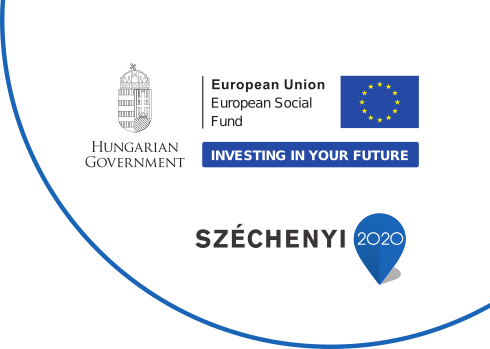Conference on Geospatial Data Processing
with special sections on
Archaeological Spatial Data Analysis
&
Urban Scene Understanding Based on GIS data
26-27 October 2020, Esztergom, Hungary
In the past decade, we have witnessed an explosion of new technologies for understanding and using spatial information in our environment. Airborne, terrestrial and mobile mapping systems equipped with laser scanners, calibrated cameras and navigation sensors are able to provide very accurate and high-resolution 3D measurement flows. However, due to qualitative and quantitative factors, conventional Geo-Information Systems (GIS) cannot efficiently utilize yet the available very dense 3D data, and the quickly evolving size of the databases means nowadays a real barrier for applications needing up-do-date semantic evaluation.
The goal of the Conference on Geospatial Data Processing is to bring together researchers from the academia and practitioners from the industry in order to address fundamentals of advances in data processing for geographic information systems and the new applications related to them. Special emphasis will be dedicated to two specific fields Archaeological Spatial Data Analysis and Urban Scene Understanding Based on GIS data. We welcome papers related to all aspects of the topic, including, but not limited to, the following broad subject areas:
- Artificial Intelligence (AI) for archaeological data analysis or urban scene understanding
- Spatial data classification, filtering, object detection
- 3D model reconstruction from GIS data
- Cultural Heritage Preservation and Documentation with GIS technologies
- Using GIS data for High-Definition Map generation
- GIS Sensor fusion
Thanks to the EU Social Fund supported THEMATIC FUNDAMENTAL RESEARCH COLLABORATIONS GROUNDING INNOVATION IN INFORMATICS AND INFOCOMMUNICATIONS (3in) (EFOP-3.6.2-16-2017-00013) project, MSc, PhD students and Postdocs who are selected for an oral presentation will get their accommodation and/or travel covered by us.
The conference attendance is limited to 50 participants for whom the registration and food costs are waived. Also, PhD students and postdocs who are selected for an oral presentation can apply for a grant that covers their accommodation and/or travel.
So, registration is FREE!
Please submit a 2-4 pages long extended abstract to be considered for talks or 1-2 pages abstracts for the poster session. Also, general registration for attendance (without an abstract) is open.
Preliminary Programme
| 02020.10.26 (hétfő) | |
| 09:30–10:20 | Coffee registration |
| 10:20–10:30 | Opening (Csaba Benedek, Gábor Bertók) |
| Archaeological Spatial Data Analysis I | |
| 10:30–10:50 | Bendegúz Takáts: 3D Reconstructions by the Kurdish-Hungarian Archaeological Mission |
| 10:50–11:10 | Gábor Bertók, Ildikó Bruda, Balázs Nagy: Recognition of Subsurface Archaeological Features from Ground Penetrating Radar Data Using Convolutional Neural Network |
| 11:10–11:30 | Eszter L. Kis Szabó: Past-Present-Future (Bajna-Halászói-dűlő I.) |
| 11:30–11:50 | Róbert Lóki: Investigate of a roman watch tower – From GPR to excavation |
| 11:50–12:10 | Ghinwa Saba: GIS and Remote Sensing in Syrian Archaeology |
| 12:10–12:30 | Carla Chlela: Digital technologies for documenting and analyzing Archaeological and Architectural Eastern sites |
| 12:30–14:15 | Lunch |
| Archaeological Spatial Data Analysis II | |
| 14:15–14:35 | Yahya Ibrahim, Csaba Benedek: Blind Inpainting Algorithm for Masonry Wall Images |
| 14:35–14:55 | Zsófia Németh, Csaba Benedek: A Point Process Model for LiDAR based automatic tumuli detection |
| Urban Scene Understanding Based on GIS data I | |
| 14:55–15:25 | Csaba Benedek: Laser scanning for cultural heritage applications |
| 15:25–14:40 | Attila Baczay, Balázs Nagy: Robot navigation and scene understanding in indoor environment |
| 15:40–16:00 | Lóránt Kovács, Csaba Benedek: Lidar point cloud change detection |
| 16:00–16:30 | Coffee break |
| 3D Medical Data Processing | |
| 16:30–16:45 | Dorina Maráki, Csaba Benedek: 3D reconstruction of airway tree from CT images |
| 16:45–17:00 | Eszter Soóki-Tóth, Csaba Benedek: 3D Reconstruction of the hepatic vascular network from CT scans |
| 17:00–17:20 | Olivér Benis, Csaba Benedek: A Marked Point Process Approach on Vascular Network Extraction from Liver CT Data |
| 18:00– | Dinner |
| 2020.10.27 (kedd) | |
| Urban Scene Understanding Based on GIS data II | |
| 10:00–10:30 | Balázs Nagy, Csaba Benedek: On-the-Fly Camera and Lidar Calibration |
| 10:30–11:00 | Örkény Zováthi, Csaba Benedek: Urban Scene Segmentation using Semantic Geospatial Data |
| 11:00–11:30 | Coffee break |
| 11:30–12:10 | Invited lecture: Žiga Kokalj, Classification of ancient Maya structures with deep learning |
| 12:10–12:30 | Closing |
| 12:30–14:00 | Lunch |
Organisers
- Csaba Benedek, PPCU Faculty of Information Technology, head of GeoComp Research Group of the Machine Perception Laboratory, SZTAKI.
- Gábor Bertók, PPCU Faculty of Humanities and Social Sciences, member of the Archaeological GIS Laboratory
- Luca Dávid (administrative contact)
Accommodation, Navigation and Important Dates
Help for accommodation
– if you are not a speaker –
The registration and food are covered by our grant, but please arrange your accommodation yourselves. We recommend the following hotels and apartments (currently negotiating a special deal with them):
http://www.szentadalbert.hu/hotel.php
https://portobello.hu/en
If you have any questions do not hesitate to contact us!
Navigation
The conference will be held in Esztergom, Hungary, you can get here:
- By Plane: Arrive at Liszt Ferenc Budapest Airport and take a taxi or minibus to Nyugati (Western) Railway Station. From there we recommend you to take the train to Esztergom (see below).
- By Train: From Nyugati Railway Station There are direct trains two times every hour to Esztergom, and from the Esztergom Railway Station the university is 20 minutes on foot. Schedules and tickets: http://elvira.mav-start.hu/
- By Car: The Univerity’s GPS Coordinates: 47.7979045,18.739026 Free Parking is here: 47.799442, 18.738154 (5 minutes from the University)
Important Dates
- Extended abstract (2-4 pages) for contributed talk application submission deadline: 5th of October, 2020
- Decision on contributed talks: 12th of October, 2020
- Poster abstract (1-2 pages) submission deadline: 5th of October, 2020
- Registration deadline: 19th of October, 2020, or until the 50 places are filled
- The conference schedule will be announced in advance.

